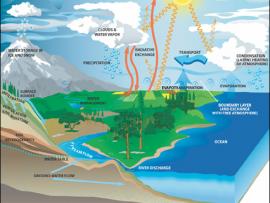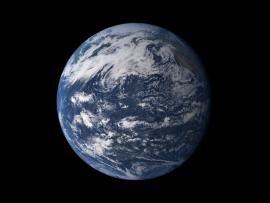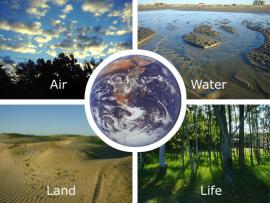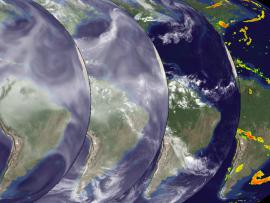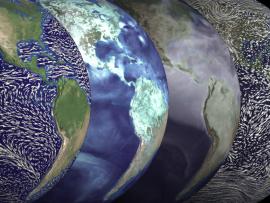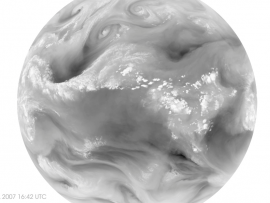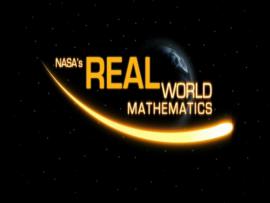Browse water vapor Resources
Browse water vapor Resources
Primary Topic:
Subtopics:
Type:
Keywords:
Summary:
The process by which water moves around the earth, from the ocean, to the atmosphere, to the land and back to the ocean is called the water cycle. These animations each portray a component of the water cycle.
Primary Topic:
Subtopics:
Type:
Keywords:
Summary:
The process by which water moves around the earth, from the ocean, to the atmosphere, to the land and back to the ocean is called the water cycle. These animations each portray a component of the water cycle.
Primary Topic:
Subtopics:
Type:
Keywords:
Summary:
This article explains the basics behind the water cycle and includes many good visuals. It provides some good background information about our water cycle as well as providing students with many real-world applications.
Primary Topic:
Subtopics:
Type:
Standards:
Keywords:
Summary:
Water is a vital substance that sets the Earth apart from the rest of the planets in our solar system. In particular, water appears to be a necessary ingredient for the development and nourishment of life.
Primary Topic:
Subtopics:
Type:
Keywords:
Summary:
This unit will introduce you to many of the complex issues surrounding the Earth as a system and will help you to look at Earth in a new way—as a living system.
Primary Topic:
Subtopics:
Type:
Keywords:
Summary:
Explore how water droplets form and fall from the sky in part three of the water cycle series. Watch how water vapor moves through the atmosphere and returns to Earth as rain and snow.
Primary Topic:
Subtopics:
Type:
Keywords:
Summary:
Explore water vapor in the air in part two of the water cycle series. This second part of our series on the water cycle illustrates the way in which evaporation and winds combine to move water from the ocean to the land.
Primary Topic:
Subtopics:
Type:
Standards:
Keywords:
Summary:
Water vapor - and with it energy - is carried around the globe by weather systems. This satellite image shows the distribution of water vapor over Africa and the Atlantic Ocean.
Primary Topic:
Subtopics:
Type:
Keywords:
Summary:
The S'COOL Project involves students (ages 5 - 20+) in real science, making and reporting ground truth observations of clouds to assist in the validation of NASA's CERES satellite instruments. Includes lesson plans and other related materials.
Primary Topic:
Subtopics:
Type:
Keywords:
Summary:
Learn about precipitation and how clouds are formed. Find out why scientists study clouds and how you can help NASA collect cloud observation data as part of the Students' Cloud Observation OnLine, or S'COOL, Project.




